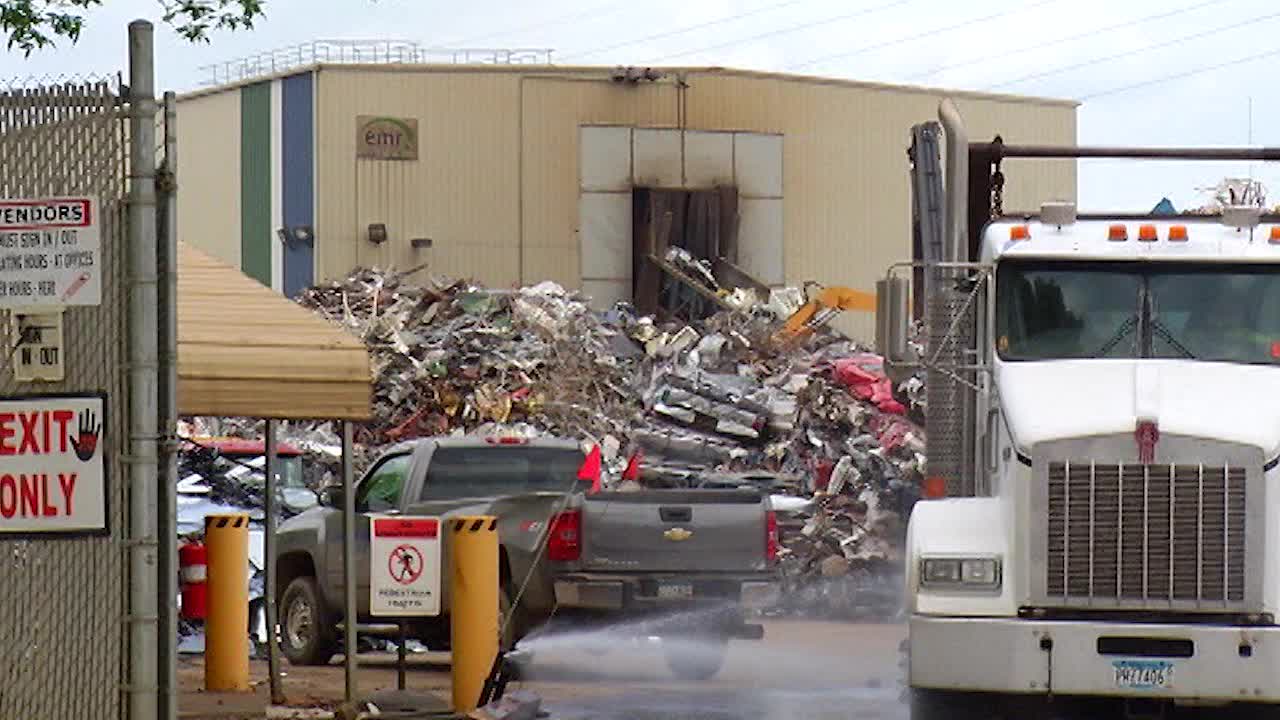Twin Cities nonprofit steps up to help with MPCA’s 20-year waste reduction plan
You could call Diana Dalsin a furniture fanatic on a mission.
“One hundred households a week is what we serve, and we are doing about 250 people every week,” she says. “In between now and landfill becomes this passion of — I know people who need it. They don’t have financial resources, so let’s give them the gift.”
Inside a sprawling 50,000-square-foot warehouse in Roseville and a second one in Bloomington, Dalsin and her team operate Bridging, a nonprofit that accepts donated furniture and gives it to people in need.
“So when someone walks in, we give them that whole home setup package, so they don’t have to worry about it,” she says.
What started as a church ministry 36 years ago has become a giant “waste not, want not” project.

(KSTP/file)
That’s why Minnesota Pollution Control Agency officials were at the Roseville warehouse Wednesday to announce a 20-year draft metro waste policy plan. You can watch the full announcement in the video below.
RELATED: Minnesota leaders unveil new plan for waste management
It’s an environmental pushback against more than 3 million tons of waste generated in 2021 alone.
“All these things have a future. They don’t need to be in a landfill,” explains Kirk Koudelka, the MPCA’s assistant commissioner for land policy. “That’s about a ton per person, and only half is being disposed of, so that means it’s not being reused, recycled or composted.”
The agency says recycling rates in the metro are around 45%, much less than a stated goal of 75% by 2030.
The MPCA’s plan is to encourage weekly recycling in all seven metro counties by 2025, make curbside composting collection available to cities larger than 5,000 people and provide grants to businesses for software to track food waste.
“We literally threw away 1 million tons of materials last year that could have been turned into something else,” Koudelka says.
Bridging is joining that effort by keeping furniture out of landfills and getting everything from couches to coffee cups into homes in need.
Dalsin says the nonprofit works with agency partners, including 2,000 case workers, to refer clients to them.
She notes the organization has impacted nearly 110,000 households and more than 330,000 people since 1987.
“[It] can be pretty overwhelming. We give them a one-hour shopping trip,” she explains. “Every week right now, we bring in 12 semi loads of stuff and send out 12 semi loads of stuff.”
Materials that Delsin says don’t end up in a landfill but instead in a home.
Meanwhile, the MPCA says if changes are made, more than two-thirds of the waste in landfills could be recycled or reused.
The agency says it’s looking for public comment on the plan through August, before it’s finalized at a later date.
“So that’s the beauty when we start recognizing big bulky items that are in good shape,” Dalsin says. “Don’t drive them to the landfill. Let’s get them somewhere else. Have a pit stop. Give it to someone so they have a place to relax every night.”
[anvplayer video=”5180453″ station=”998122″]